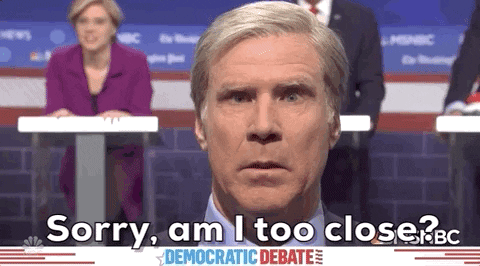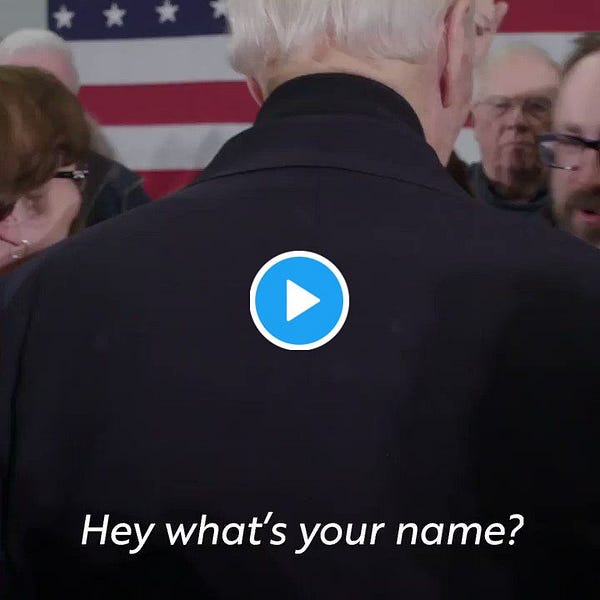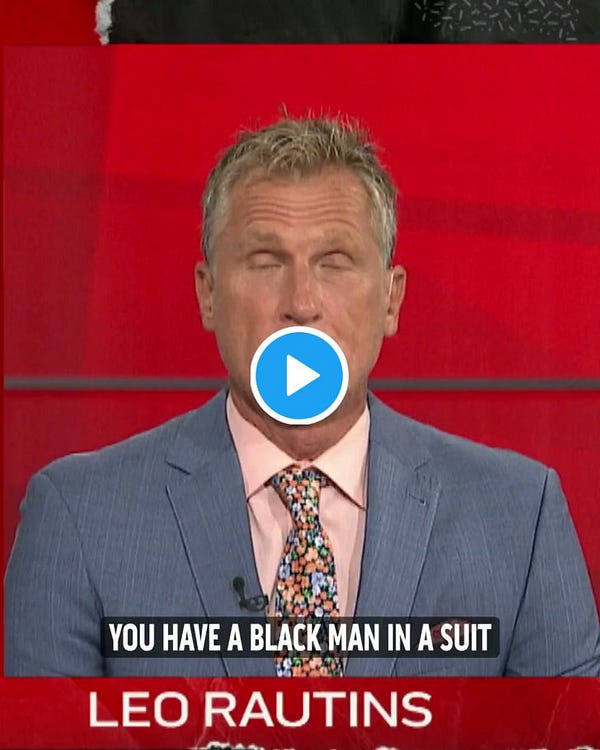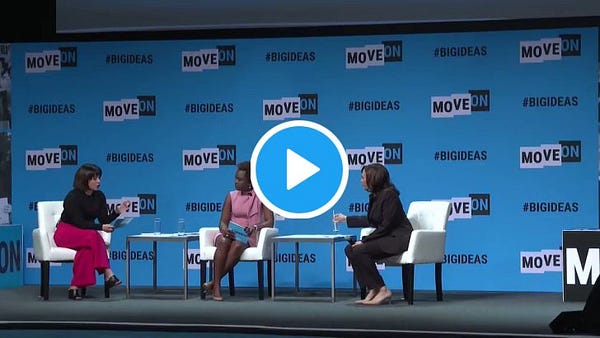Check Against Delivery
Loss Leader Issue #3. The power of the podium, plain language and Schitt's Creek.

It never ceases to amaze me that leaders give speeches and say nothing.
There are only a rarified few who are literally given a microphone, a platform, an audience and the opportunity to impart something - anything - important. And yet, so many fail to meet that challenge. Most people start speaking, and we all look at our phones.

I’ve been lucky enough to write a few big speeches for others, including two convention speeches and a Speech from the Throne, as well as some of my own. The mistake most speechwriters make (including me) is writing for the page and not for the audience. A speech - like a play - is about eliciting a reaction from the audience. It’s about them. You want them to hear you. To feel something. To think about something. To rise to their feet when it ends.
There’s never been a more important time to use our voices effectively to lead people to action, and speeches, with their ability to live on line and spread through social media, can reach large numbers and serve as a powerful tool of influence. Great leaders know this. And at last week’s Democratic National Convention some of them provided a masterclass in leadership through oratory, and showed how effective communication can actually benefit from the confines of our new digital boundaries.
Set out the Stakes
It’s amazing how many people forget that a speech needs to be about something. What are these remarks about and why do they matter?
The Democratic speakers did not mince words on this front.
“This is a life-changing election that will determine America's future for a very long time,” said Democratic candidate Joe Biden. “Our current president has failed in his most basic duty to this nation. He failed to protect us. He failed to protect America. And, my fellow Americans, that is unforgivable.”
“If you think things can’t get any worse, trust me, they can and they will,” said Michelle Obama.
Inspiring communications is difficult at the best of times. Via a screen with limited time to grab people’s attention, you better get to it. Leadership is about showing people that there is a choice to be made, and getting people to believe that you are making the right one. And so...
Provide an Antidote
You gotta say what you’re going to do. Don’t dance around it. Lay it out.
“On day one we'll implement the national strategy I've been laying out since March,” said Biden, in reference to beating back Covid deaths in the US.
Elizabeth Warren, who admitted her love for “a good plan” provided an argument to introduce affordable childcare as “part of the basic infrastructure of this nation.”
This is also the part of the speech you should think about before you decide whether or not you need to make one. If you don’t have something you want to do, or that you think should happen, don’t give a speech.
Plain language that shit
“This is not normal, and we must never treat it like it is,” said Bernie Saunders in his address, where he appeared to be literally taking Trump to the woodshed.

I feel the same way about the words people use in speeches: Vocabulary and turns of phrase and passive language that they would never utter out loud in conversation.
Write like a normal human being speaks! Catalyzing is not a normal word, and we must never treat it like it is.
Sure it was cute when Bernie said “Nero fiddled while Rome burned. Trump golfed.” Very clever. I want a poll on how many people knew what the hell he was talking about. Barack Obama is possibly the only current leader who can employ the grandeur of language while still making a point. But even he promised to be as “plain spoken as I’m capable of being.” Don’t show off. Connect.
Warren, to that end, described Trump’s time in power as “one gut punch after another.” That, we get.
It’s about the presentation, Dummy
If the past few months of remote work have been helpful for anything, it’s forced us to stare at our own stupid faces during video calls. And what did we learn? Backdrops can communicate things. That we need to be presentable, from the waist up. That you can tell when people aren’t paying attention. When they’re reading or unprepared or don’t care.
I’ve seen so many people deliver a line of a speech in the wrong register. Smiling when they’re talking about something serious. Flat when they should be rousing.
When you’re giving a speech you’re not reading words, you’re talking to people. Michelle Obama’s speech was powerful because it felt as though she was staring into your soul when she said, “This is not who we are.”
My favourite thing about Biden’s speech was the appropriate emotional calibration he pulled off in the range of his register: mad when he needed to be mad, tough when he needed to be tough, compassionate about what has passed.
If you want people to hear what you’re saying, really say it. Mark up your speeches with pauses, applause lines, moments to make eye contact with your audience. Great leaders use their environment, appearance and facial expressions to back up their words.
Make a Call to Action
Great speeches are about the audience, and getting them to do something.
You have to end with a call to action.
“Embrace your own responsibility as citizens,” said Barack Obama.
He asked people to make a plan for how they’re going to vote - knowing that having a plan for where and when you vote is one of the biggest pre-determinants of whether people will show up at the polls.
Michelle went even further, giving them instructions so they would stay there. “Pack a lunch, dinner and breakfast too so you can stay in line all night, if you have to.”
Give your audience some agency, some action. If you want to lead, you better give people some place to follow you.
Keep it brief
Event organizers often invite people to speak for 40-60 minutes. No one has that much to say, ever. These people were giving the most important speeches of their lives, to an audience of millions, with the highest possible stakes. The longest speech was 24 minutes. All leaders should remember that and never speak for a second longer.
Success Metrics
122 million live viewers throughout the DNC
24.6 million viewers for Joe Biden’s address
$70-million in fundraising during the convention
Dereliction of Duty

Event programming can demonstrate leadership too, through the selections made and the platforms provided to specific voices. The DNC did not give a speaking slot to Alexandria Ocasio-Cortez, the fastest growing star of progressive politics and a woman who has proved a mastery of communications on every platform. Would everyone have loved what she had to say? Probably not. But damn right they would have listened.
Quick Leads
All the world’s a stage and you don’t always need a physical podium to show leadership, or show people what is possible.
Dan Levy created Schitt’s Creek and showed us a world where kindness, not prejudice, was the norm. His fans recently celebrated his birthday by raising more than $17K for @TransLifeline and now, Levy has encouraged his 2.5-million social media followers to join him in signing up for a free online course at the University of Alberta called Indigenous Canada, on which he’ll host an on line discussion every Sunday.
Joe Biden demonstrated empathetic leadership in his exchange with a young man with a stutter. Stakes: bullies and loss of confidence. Action: call me and I’ll give you tools. Delivery: hand on the boy’s shoulder and looking him in the face.
In newly released video, it’s clear that Toronto Raptor Kyle Lowry saw President Masai Ujuri in the aftermath of being assaulted in the Golden State Warriors stadium last year and pulled his friend and boss to safety, and where he belonged.


Raptors TV Analyst Leo Rautins pulled no punches using his platform to explain why what happened to Masai matters.
Would you stand up, when the time came? Kamala Harris’s new chief of staff Karine Jean-Pierre once positioned herself between the candidate and a man who rushed on stage.
 At the #BigIdeas @MoveOn festival moments ago — @KamalaHarris was on stage answering questions when a man jumped on stage and grabbed her microphone. The senator came back out on stage to finish her speech about #EqualPay.
At the #BigIdeas @MoveOn festival moments ago — @KamalaHarris was on stage answering questions when a man jumped on stage and grabbed her microphone. The senator came back out on stage to finish her speech about #EqualPay.









